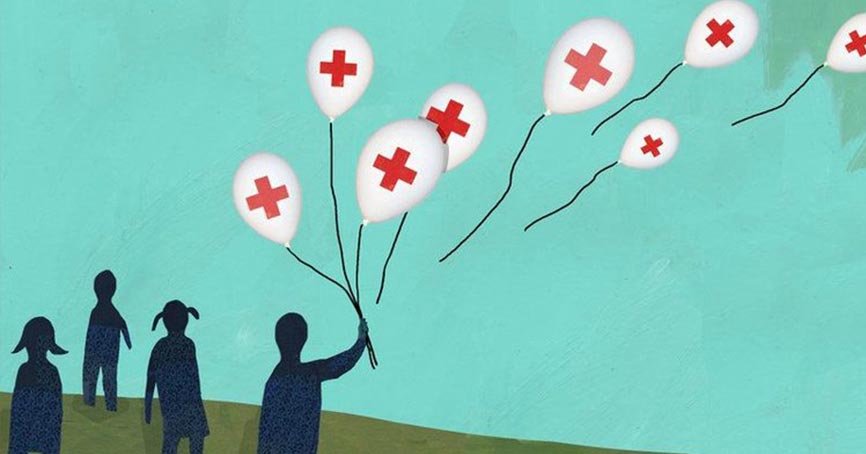Cancer that originates in the lungs mostly occurs in people who smoke. Lung Cancer forms a major chunk of patients diagnosed with cancer. However, the good part is that lung cancer treatments are easily available and one can fully recover if treated on time.
While treatment is easy and readily available, one must also know that lung cancer is preventable. One of the best ways to prevent deadly disease is not smoking tobacco at all. While the disease takes years and years to develop, it is best if detected early as treatment is easily possible.
Lung Cancer Complications
Cancer may cause various complications before trying out any of the lung cancer treatments-
- Pain
- Shortness of Breath
- Coughing up blood
- Cancer may spread to other parts of the body
- Fluid in the chest
Lung Cancer Prevention
Prevention of lung cancer is not guaranteed, however, following the below mentioned may reduce the risk of cancer.
- Do not smoke- Smoking is one of the leading causes of lung cancer. It is best to never start smoking in the first place, but in case you already have, quit smoking now. Some of the options to quit smoking are nicotine replacement products, medications, and support groups.
- Passive smoking can be dangerous- Living or working with a smoker is equally dangerous for anyone. Moreover, being in places with smokers can cause the same amount of damage.
- Test your home for radon- Keep the radon levels at home in check as it may lead to lung cancer.
- Avoid Carcinogens- It is best to take precautionary measures to protect oneself from exposure to toxic chemicals. If one works at such a place, it is best to take all possible precautionary measures.
- Exercise- Exercise helps to prevent a number of diseases. If one doesn't exercise at all, starting now would be the best option
- Eat a balanced diet- A balanced diet has all necessary sources of vitamins, minerals, and other nutrients which helps the body build its immune system.
Lung Cancer Treatments
The type of treatment a patient receives significantly varies based on how advanced the cancer is, type of cancer, the age of the patient, the overall health of the patient and so on.
While some patients readily go for treatment, a few others may choose to not undergo the same. In such cases, the doctor may suggest medications so as to treat the symptoms caused by cancer like pain or shortness of breath.
Some of the options available for lung cancer treatments are-
Surgery
The doctor may schedule the patient for surgery to remove the lung cancer and some part of the healthy tissue as well. Some of the surgical procedures to remove lung cancer include-
- Wedge Resection
- Lobectomy
- Pneumonectomy
- Segmental Resection
During certain surgeries, the surgeon removes the lymph nodes from the patient's chest to check them for signs of cancer. If cancer sticks to the lungs, surgery is the best option. If the lung cancer has spread, the doctor may recommend chemotherapy and radiation therapy so as to shrink cancer.
In case the cancer cells remain after surgery, cancer may recur and the doctor may recommend chemotherapy after surgery.
Radiation therapy
Radiation therapy uses high-powered energy beams from sources like X-rays and protons to kill cancer cells. During radiation therapy, the patient lies on a table while a machine revolves around, directing radiation to specific points in the body.
Patients with locally advanced lung cancer may require radiation before and after surgery. Moreover, the doctor may also combine radiation therapy with chemotherapy if required. Radiation therapy may also help relieve the symptoms of advanced lung cancer that have spread to other parts of the body.
Chemotherapy
Chemotherapy makes the use of drugs to kill cancer cells. These drugs may be given through a vein in the arm or may be consumed orally. This is done over a period of weeks and months so the patient has adequate time for recovery. Doctors perform chemotherapy usually after surgery to kill any remaining cancer cells. The doctor may combine it with radiation therapy or may also do it alone.
Radiosurgery
Radiosurgery is an intense radiation treatment that aims beams of radiation from different angles at cancer. This may take a few sessions to complete. This is feasible for patients with lung cancers who are not able to undergo surgery.
Targeted drug therapy
The targeted drug therapy focuses on certain abnormalities present in the cancer cells. When the abnormalities are blocked, it causes the cancer cells to die. A number of patients are treated with this technique, however, it is mostly reserved for patients needing advanced care.
Immunotherapy
Immunotherapy makes the use of the patient's own immune system to fight cancer. The body's immune system may not attack cancer because the cancer cells produce proteins that render the immune system cells blind. Immunotherapy interferes with that process and proves the body to fight.
Bibliography:
- https://www.cancercouncil.com.au/lung-cancer/treatment/
- http://www.cancerresearchuk.org/about-cancer/lung-cancer/treatment
- https://www.radiologyinfo.org/en/info.cfm?pg=lung-cancer-therapy
- https://www.mayoclinic.org/diseases-conditions/lung-cancer/symptoms-causes/syc-20374620

 Jun 03, 2019
Jun 03, 2019
 May 30, 2018
May 30, 2018 May 10, 2018
May 10, 2018 May 17, 2018
May 17, 2018